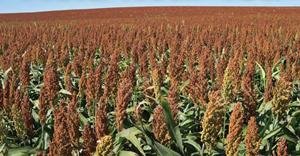First-ever native trait for grain sorghum is now under development
The trait, named Inzen, was identified by sorghum breeders at Kansas State University (K-State). Inzen is a non-genetically modified trait, meaning it will not be subject to the regulations imposed on transgenic products by USDA. That presents greater international marketing opportunity for farmers and the crops that will be grown from hybrids with the trait.
“We expect to be able to expand our sorghum exports around the world because it contains no GMOs [genetically modified organisms],” notes Wayne Schumacher, new technology launch manager for DuPont.
Sorghum hybrids containing the trait will be commercialized initially by DuPont Pioneer and Advanta US. Schumacher expects other companies will also sign-on to use the trait in their sorghum hybrids.
The U.S. exports almost half of the sorghum it produces and controls 70% to 80% of world sorghum exports, according to the USDA–National Agricultural Statistics Service. Worldwide, more than half of the sorghum grown is for human consumption.
Schumacher says market research by K-State scientists indicates the ability to control grass weeds is a significant concern for farmers as they manage sorghum for maximum yield.
“We find that grass causes about a 20% yield loss, or 13 bu. per acre, on average in sorghum,” he notes. The percentage loss is calculated based on an average U.S. sorghum yield of 65 bu. per acre.
The Inzen trait offers the potential for use in hybrids anywhere sorghum is grown. Farmers in Kansas, Missouri, Nebraska, Oklahoma and Texas produce most of the grain sorghum grown in the U.S.
DuPont also has several field trials underway this summer as it ramps up for commercial use.
Schumacher notes that farmers might be encouraged to grow more sorghum given its current price relative to corn.
“The basis for sorghum is 20¢ to 30¢ above corn at a number of the ports right now, so it’s a very viable, economic-positive crop,” he says. “Will we get back up to the 12 million acres we once grew? We don’t know, but there’s no reason we can’t.”


